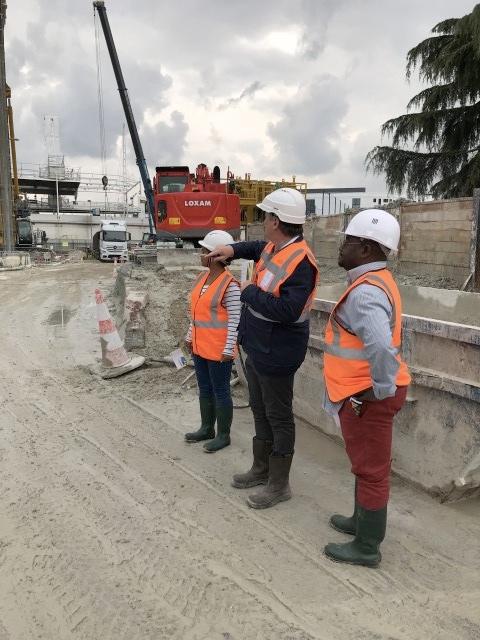
Réalisation
Information and Management of Residents as Part of Works Management
Information and Management of Residents as Part of Works Management
Two training sessions of two days each were organised for the employees of STIB, the intercommunal transport company in Brussels, who are in charge of presenting STIB’s worksites to residents and/or groups of representatives.
The educational objectives were defined as providing the participants with tools and methods to:
- design arrangements that favour residents’ acceptability in the works phases of major projects;
- be able to implement and monitor such arrangements: organisation, roles and tasks, technical/legal/financial means and resources, etc.;
- develop participative approaches that allow residents to be involved in the management of nuisances and make them successful;
- listen to, communicate and negotiate to inform/convince the residents and build confidence;
- manage the aggressiveness of opponents and conflicting situations.
These training actions were based on two main topics:
Topic 1 (first day): Management of conflicts with third parties in the conduct of works
- Preparation to avoid and control a conflict (a conflict can often be avoided or at least anticipated: “Being vigilant and knowing how to act/react, a learning experience”).
- Analysis of a conflicting situation (one’s own perception of a conflict and one’s defence mechanisms, the appropriate perception of the other and of the situation).
- Actual management of the conflict (listening to but also decoding weak signals, always being constructive, being active and assertive, being solution-oriented and defending one’s solutions).
Topic 2 (second day): Consultation/communication principles and arrangements in works phases
Major principles for communicating on the works and projects with local stakeholders, management of appropriation by the residents and impacted public:
- Impacts and nuisances: anticipation is difficult for the residents and affected public to apprehend!
Perception of nuisances: responses and channels suited to each profile.
- Collective work: project owner, project manager and contractors = multiple contact persons and messages. Coordination of different publics to be anticipated: local elected representatives, residents and inhabitants, local users, etc.
- An obligation of result (costs and lead times): communication as a works success factor.
Nature, duration and zone of the works: how to manage the residents’ expectations (provisional urban planning, managing the works temporality by telling a story, etc.) and how to identify sensitive areas.
Services fournis
lors de cette réalisation
Preparation and facilitation of two training sessions on the basis of a participative approach and real-life situations met within the framework of the “Greater Paris Express” project and works conducted by STIB;
Implementation of a teaching approach that combines theoretical inputs with individual and collective work on the production of an action plan, the response provided and the lessons learned.
The following subjects were dealt with:
- Governance, and dedicated instances and competences; roles of the various players.
- Specific tools and methods:
- Preliminary information and communication: explaining and showing the worksite.
- Identification of sensitive publics and specific measures.
- Joint evaluation of nuisances for appropriate actions: precaution, prevention and compensation measures.
- The worksite as a living place:
- Proximity mediation and dialogue process: at town level, at neighbourhood level, at joint-ownership property level, etc.
- Involvement of the local associative fabric.
Centralisation of the feedback from residents, sharing and reactivity of responses.
au 30 January 2019
STIB (Société des transports intercommunaux de Bruxelles)
